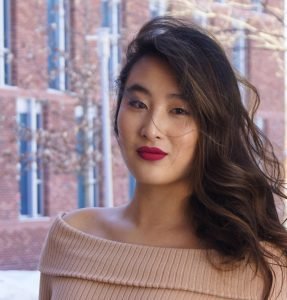 As the school year comes to a close, we are saying goodbye to Emily, who is a Brandeis student who interned with us helping to run our Peers Against ViolencE (PAVE) program. Before she left, we asked her to reflect on what she’s learned over the past year. This is what she had to say.
As the school year comes to a close, we are saying goodbye to Emily, who is a Brandeis student who interned with us helping to run our Peers Against ViolencE (PAVE) program. Before she left, we asked her to reflect on what she’s learned over the past year. This is what she had to say.
In the fall of 2016, my junior year, I joined REACH as a college intern as part of a clinical psychology practicum course I was taking at Brandeis University. Upon being hired as an intern, I assumed much of my responsibilities would include spending time helping around in the shelter and getting to know the lovely residents. However, one phone call later and I had agreed to work under Dani Patrick, REACH’s Youth Education Specialist. My new responsibilities included being an adult facilitator to Waltham High School’s Peers Against ViolencE (PAVE) club members. There was only one thing that concerned me – I had zero experience working with high school students. Being only 20 years old myself, I was just barely out of high school. Aside from helping the students with events and meetings, I was not quite sure how my relationship with the students would turn out. But one year later and I find myself taken back by how much I have learned and how much I would miss working with the students. From my positive experiences, I have compiled a list of three valuable things that I learned working with high school students as a college intern.
- Lack of action does not mean lack of interest. Contrary to popular belief, high school students are not any less busy than the rest of us. From my own personal experience, high school was much busier than college was for the first two years. This is something I came to realize again as I put myself back into their shoes. When it came to planning events, many times students did not respond to texts or did not sign up to participate. It was very reminiscent of working with college students. However, I learned that with a little persistence on my part, students often showed much more initiative than they did at the beginning. What it frequently came down to was that they were just too busy to keep up with new events or responsibilities on top of their current ones. But they still had the same passion they did when they first joined PAVE to spread awareness of teen dating violence. Do not be afraid to send many a reminder to help mobilize them.
- It is okay to be off task sometimes. When I first started going to meetings, I noticed that much of the time was spent trying to focus the group back on topic from conversational digressions instead of on the task itself. But when I started leading meetings on my own, I realized that utilizing the beginning of the meeting to let them de-stress about the day and talk to each other about non-PAVE related topics ended up being effective as they did not digress as often later in the meeting during tasks. I even took this mentality back to my responsibilities as leader of several clubs at Brandeis and realized that it was just as effective. Leaving room for some socializing among the business does not hurt and in fact can help with being more efficient.
- High school students are just as valuable to the social cause as adults. Especially during the teenage years, peer influence becomes increasingly important. And because of this, the most effective group in educating and reaching out to teens about dating violence is teens themselves. Hearing one of the students share that they had joined PAVE and could move on from an abusive relationship all because of a friend reaching out is exactly why PAVE is so important. The fact that PAVE even exists is a step in the right direction from when I was in high school despite being only three years older. More educated teens leads to more educated adults, which results in a safer world. And that is exactly what we need right now.
I hope that these three points provide insight into the impactful experiences I had during my time as an intern. I will undoubtedly take these lessons with me as I pursue the field of psychology and utilize them to help those who need it.





